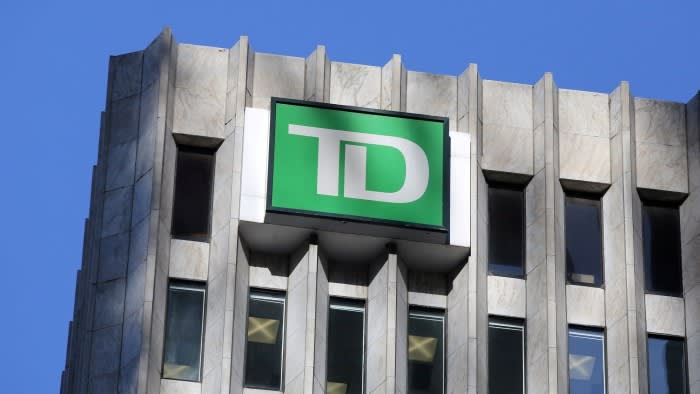Unlock the Editor’s Digest for free
Roula Khalaf, Editor of the FT, selects her favourite stories in this weekly newsletter.
TD Bank has agreed to pay the US government just over $3bn to settle charges that it failed to block criminal organisations from using the Canadian lender to launder hundreds of millions of dollars through its accounts.
The Department of Justice said TD had “long-term, pervasive and systemic deficiencies” in its anti-money laundering programme but did not remedy them because of an internal mandate to keep costs flat.
The bank failed to monitor 92 per cent of its transaction volume during a six-year period, amounting to $18.3tn during that time, according to the DoJ. Three money-laundering networks collectively transferred more than $670mn through the bank, authorities said.
TD also ordered branches to stop filing internal reports on unusual transactions involving certain suspicious customers, and permitted more than $5bn in activity to occur in accounts it had already decided to close, prosecutors said.
Two units of Toronto-based TD, Canada’s second-biggest bank by assets, on Thursday pleaded guilty to conspiring to fail to maintain an anti-money laundering programme, failing to file accurate currency transaction reports and conspiring to launder money, as well as other counts.
Shares were down more than 5 per cent in afternoon trading on Thursday.
“TD Bank created an environment that allowed financial crime to flourish,” US attorney-general Merrick Garland said at a news conference announcing the resolution. “By making its services convenient for criminals, it became one.”
The deal with the DoJ includes the largest ever penalty imposed under the US Bank Secrecy Act, which requires banks to guard against the use of the financial system to facilitate criminal activity.
“Every bank compliance official in America should be reviewing today’s charges as a case study of what not to do,” said Lisa Monaco, deputy US attorney-general.
“This is a difficult chapter in our bank’s history,” Bharat Masrani, who had already announced plans to step down as TD’s chief executive next year, said in a statement. “These failures took place on my watch as CEO and I apologise to all our stakeholders.”
The bank faces a mix of criminal and civil penalties imposed by the DoJ, the Office of the Comptroller of the Currency, the Federal Reserve and the US Treasury. As part of the deal, TD has agreed to install an independent monitor for four years.
The DoJ has charged more than two dozen people in relation to the case, including two TD employees. The investigation remains ongoing and Garland said “we would expect future cases against individuals”.
TD’s “stunningly widespread failures allowed criminal proceeds to flow through” the bank, said Philip Sellinger, US attorney for the district of New Jersey, pointing to Da Ying Sze, an individual known as David, who laundered more than $470mn through the lender. He “brazenly dumped piles of cash” at TD counters on a nearly daily basis and bribed the bank’s staff with more than $57,000 in gift cards, Sellinger added.
The guilty plea follows three related cases, in which TD bank employees were accused of accepting bribes to open accounts for shell companies and issuing dozens of debit cards tied to the accounts. Prosecutors identified the bank as Financial Institution-A or Financial Institution No. 1 in court filings. The debit cards were transported to Colombia, where they were used to withdraw money from cash machines.
The TD fine is one of the largest penalties imposed by the US on a financial institution in the past 10 years, which have included a $9bn fine in 2014 on France’s BNP Paribas for alleged sanctions violations and a $4.3bn fine last year on cryptocurrency exchange Binance.
The settlement caps a challenging 18 months for TD, during which time it had to scrap a planned $13.4bn acquisition of US lender First Horizon and announced a new chief executive who is set to take over next year.
The lender, known for its bright green logo and for sponsoring the arena of the Boston Celtics, the reigning National Basketball Association champions, had already set aside $2.6bn in response to the investigation.

